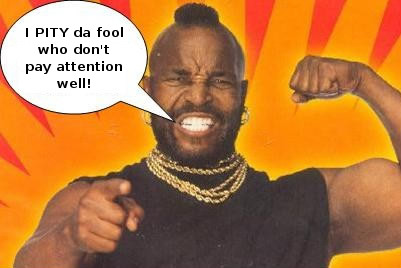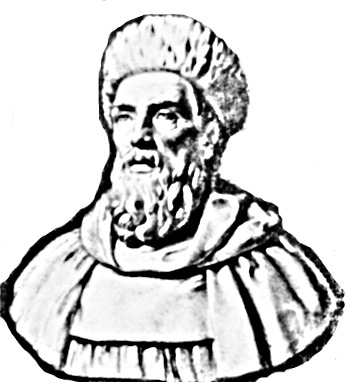Kimel’s review of What is the Trinity – Part 3
What Origen actually says vs. what trinitarians wish that he’d said.
What Origen actually says vs. what trinitarians wish that he’d said.
![]()
Swinburne isn’t what you’d call a theological liberal. He’s not a conservative evangelical either, given his rejection of things like biblical inerrancy. He was, I believe, a life-long Anglican, until 1996 when he converted to Eastern Orthodoxy. As I understand it, at least part of his motivation was his exasperation with anything-goes style Anglicanism (e.g. priests who are not theists). But my point is that he aims to be a “Catholic” Christian, in the sense of one who holds to mainstream orthodoxy – roughly, that core of doctrines held in common by Catholicism, Eastern Orthodoxy, and (at least in theory) most Protestants. (Actually, he’s probably a good bit more “Catholic” than that – in that he believes in apostolic succession, and in the authority of The Church to decree the meaning of scriptural texts – see his book Revelation.) This requires some dexterity on his part, and creates the burden of crafting a theory that one can claim fits with the “Athanasian” and Constantinopolitan Creeds.
Swinburne argues that it is uncharitable to read the ecumenical councils’ claim that “there is only one god” as asserting that there’s only one divine individual, as that would contradict their committment to there being three divine individuals.Read More »Swinburne’s Social Trinitarian Theory, Part 2 – a key move
In this episode, a conversation with Dr. Bart Ehrman about his How Jesus Became God, and the evangelical response book How God Became Jesus. Dr. Ehrman has given other interviews in which he gives an overview of his project in the book. So skipping that, we jump right into some of his more controversial conclusions, and how he arrived at them. We also discuss the… Read More »podcast 35 – Interview with Dr. Bart Ehrman about his How Jesus Became God – Part 1
Yet another round from Steve Hays. This is my last entry in the discussion; I may or may not comment, but no more posts. Again, this is what I hear from him: Yes, the divine nature is a universal, shared by the Three. But let’s not make any Platonic assumptions about forms/universals being in some other realm than what has them, or being more fundamental.… Read More »What is the Trinity? A Dialogue with Steve Hays – Part 3
 Sean Finnegan is an intelligent and well spoken “Biblical Unitarian” Christian. He recently earned an M.A. in Church History from Boston University. He runs the christianmonotheism website, which aggregates work by contemporary Christian unitarians. I was pleased to meet him at a recent conference, at which he gave a fascinating presentation on how many (but not all) “church fathers” rejected the everlasting earthly Kingdom in favor of “going to heaven,” i.e. a non-bodily afterlife.
Sean Finnegan is an intelligent and well spoken “Biblical Unitarian” Christian. He recently earned an M.A. in Church History from Boston University. He runs the christianmonotheism website, which aggregates work by contemporary Christian unitarians. I was pleased to meet him at a recent conference, at which he gave a fascinating presentation on how many (but not all) “church fathers” rejected the everlasting earthly Kingdom in favor of “going to heaven,” i.e. a non-bodily afterlife.
Here’s a blog post by Sean on the debate I’ll be reviewing below.
Brent Bosserman was at the time of the debate an adjunct professor at Northwest University in Washington state. I believe he’s still there, but can’t find out much about him online. But here’s a long 2007 talk of his, called “Christianity and Trinitarian Worldview.” He talks at the start about his background.
This debate suffers by not having a precisely defined debate question. While Finnegan mostly sticks to the biblical case for his view and against Bosserman’s, Bosserman pulls out a broad brush and tries to compare all-encompassing “worldviews.” This is not a good idea; a debate is finite in time!
The intros are over-long and intrusive here; I’ve skipped you to the actual start. My summaries and commentary follow.
A would-be teacher on trinitarian topics is merely an incoherent tritheist.
Rebutting a slanderous and careless “review” by a blogger.
Is Jesus referred to as “God” in the Bible, and if so, does this mean that Jesus is the one God himself?
 Has Richard, after these 21 chapters so far of Book III of his On the Trinity (De Trinitate) only succeeded in proving that there are at least three gods? In chapter 22, Richard argues for a negative answer.
Has Richard, after these 21 chapters so far of Book III of his On the Trinity (De Trinitate) only succeeded in proving that there are at least three gods? In chapter 22, Richard argues for a negative answer.
First, he refers back to the doctrine of divine simplicity, which is common coin for medieval theists, even, surprisingly, for trinitarians. This needs explaining nowadays – theists now tend to think of God’s nature as something he has, and of God as having, and not being, his attributes. Moreover, we tend to think that God has many attributes.
For a primer on divine simplicity, I can do no better than Bill Vallicella:
[According to this doctrine] God is radically unlike creatures in that he is devoid of any complexity or composition, whether physical or metaphysical. Besides lacking spatial and temporal parts, God is free of matter/form composition, potency/act composition, and existence/essence composition. There is also no real distinction between God as subject of his attributes and his attributes. God is thus in a sense requiring clarification identical to each of his attributes, which implies that each attribute is identical to every other one. God is omniscient, then, not in virtue of instantiating or exemplifying omniscience — which would imply a real distinction between God and the property of omniscience — but by being omniscience. And the same holds for each of the divine omni-attributes: God is what he has. As identical to each of his attributes, God is identical to his nature. And since his nature or essence is identical to his existence, God is identical to his existence. (William Vallicella, “Divine Simplicity”, Stanford Encyclopedia of Philosophy)
Richard starts ch. 22 by gesturing back at book I of De Trinitate – his point is that this divine being/essence/nature common to the three is utterly simple. Yet he realizes that this by itself won’t soothe the concern about monotheism. How can we rule out that there are three gods, each of which has is an utterly simple, composition free being? Then he hits on an additional argument.Read More »Richard of St. Victor’s De Trinitate, Ch. 22 – part 1
Does the Gospel According to Mark contain as hidden messages the deity of Christ and the Trinity?
What if the official god of your theology isn’t the one who actually gets his way in your life?
Man, if I don’t love youtube. Never thought you’d here the words “modalistic monarchianism” in a rap?
Yo. Check it out this rap “Godhead” by Flame. Comes with bonus sermon excerpts.
My favorite rhyme, from verse 3: “Pentecostalism” with “cost of living”. That was a hard one! Well played. 🙂 Second best: “Sabellius” with “belly is”. (Verse 2) He really should’ve worked in “Nestorianism” towards the end of verse 3, but I guess that would tax the rhyming skills of Snoop Dog himself.
The concern here is to refute “Oneness” folk. Take that, Winterband!!! Indeed – Sabellius was trippin.
After the break, the lyrics in all their glory, as posted on the youtube page, with the best bits bolded by me.
Read More »Refutation of “Oneness” Theology in Rap Form (Dale)
After my 2004 piece in which I gave three arguments against “social” trinitarianism, I had the privilege of being taken to Hask refuted twice by the excellent veteran Christian philosopher William Hasker. This last summer, I finally got around to replying. I wrote a long piece and sent it to Religious Studies, who had published my original article and one of Hasker’s replies. They generously… Read More »Reply to Hasker re: My Divine Deception Arguments
A thoughtful Baptist confronts his church about biblical vs. later teachings about God, Jesus, and heresy.

“Stand aside, puny moderns. Or postmoderns. Or whatever you are.”
I thought that Scott and Joseph made some really penetrating comments on the first two posts in this series. Here I want to recap them, so we can discuss how Henry of Ghent (c. 1217-93) a.k.a. The Solemn Doctor would interpret our chart (see the first two posts), specifically, the second, modalistic interpretation I offered.
First, Joseph comes in with some weighty objections to that model (summarized and expanded by me from his comments).Read More »The Latin Trinity Chart 3 – Henry of Ghent to the rescue
 Prolific blogger (at Triablogue) Steve Hays and I have recently been discussing various things.
Prolific blogger (at Triablogue) Steve Hays and I have recently been discussing various things.
At the end of a recent exchange, I basically said: Dude, I don’t know what you think “the” doctrine of the Trinity is. What, in your view, does it mean to say that God is a Trinity?
He’s now responded here.
In this post, I try to understand just what he’s claiming, in other words, what he takes trinitarianism (rightly understood) to be.
This is a bit risky, because I think he’s confused about the concept of identity, and I’m trying to hear a self-consistent view here.
The first job in critical thinking is carefully listening to what the source at hand is saying. Here I listen carefully, editing out a lot of his methodological musings and terminological quibbles, trying to get to the meat of his view.
I think the meat starts here:Read More »What is the Trinity? A Dialogue with Steve Hays – Part 1
Dr. Hurtado explains the term “early high christology” and what it means when applied to his own work.
“Well, who created God, then?” Many an atheist has lobbed this one, supposing it to be a devastating objection in question form. In reply, Christian philosopher Paul Copan knocks this one out of the park. Well played, sir. I would add a few points: One of the perfections a perfect being is supposed to have is aseity – existing but not because of anything else.… Read More »Copan answers: Who created God?
Back in 1983, the excellent scholar of early modern philosophy Sarah Hutton published an interesting little piece called “The Neoplatonic Roots of Arianism: Ralph Cudworth and Theophilus Gale” (in Lech Szczucki, ed. Socinianism and its Role in the Culture of the XVI-th to XVIII-th Centuries (Warsaw: Polish Academy of Sciences, 139-45). Professor Hutton informs me that it will be coming out in a collection of papers on the Cambridge Platonists. I’ll just very crudely summarize the piece, and make my point about it.

Read More »Plato: proto-trinitarian, or the Father of Arianism?